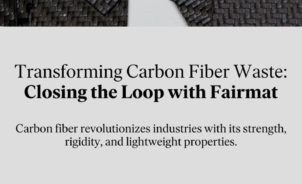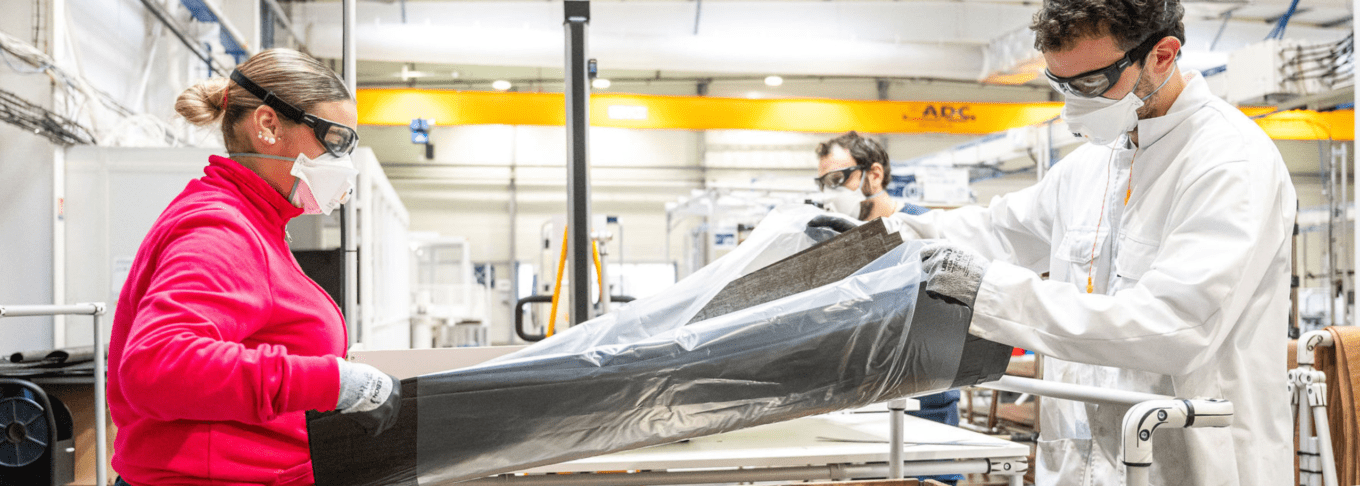This article is your gateway to understanding why carbon fiber composite recycling matters, as well as those who take part.
Many organizations have teamed up with Fairmat to give a second life to carbon fiber that has outlived its primary purpose. Post-industrial and/or post-consumer carbon fiber composite waste that leaves their doors, finds a fresh start as a raw material entering Fairmat’s.
Fairmat’s goal is to keep valuable materials from going to waste. With the active assistance of our recycling partners, Fairmat accomplishes this and much more.
But can recycling carbon fiber alone keep the environmental impact in check? Do our actions leave a mark? Is our investment or effort worthwhile?
These are the questions that will guide our narrative below.
Recycling “responsibly”
We are a lot closer to 2030 than when countries pledged to reduce emissions by “2030” a few years ago. Industries can no longer afford to look the other way, not when non-compliance carries a steep price.
Lowering industrial energy consumption to achieve the set environmental targets has been prioritized and invested in for a while. In comparison, the role of recycling in doing so has only been recognized recently and by a few.
It is, in fact, very recent for the carbon fiber composites indutry. Composites’ heterogeneous makeup defies the simple recycling solutions; they cannot be melted down like metals for reuse or composted like paper. They have to be recycled.
Yet, even with a steadfast commitment to recycling composites, the true stride toward reducing the environmental impact relies on innovation and the willingness to embrace change — a movement that starts with (you/us).
But can only “recycling” tip the ‘environmental’ scale? We believe not.
It is no longer about just getting rid of the waste by recycling it, but about recycling “responsibly’.
Recycling responsibly, in a nutshell, is ensuring that:
- The recycling method itself is eco-friendlier than alternative waste disposal methods.
- The recycled material is repurposed into a value-added product.
Organizations that have had their feet dipped into managing composite waste know this to be true. And Fairmat is doing it’s part by recycling responsibly — with about 9 times lesser environmental impact than other conventional recycling methods.
Recycling “carbon fiber composite”
If our and the planet’s environmental deadlines are fast approaching, should we not prioritize recycling materials with the highest environmental toll?
Arguably so. However, recycling advanced materials holds significant value, especially considering the application of post-consumer recycled material.
To put it another way, we may replace the outsole of your shoe with recycled t-shirts or rubber, and it should work just fine. However, recycled advanced materials can even be applied where high performance, lightweight, and longevity are a priority. It’s a market with potential, especially for carbon fiber composite.
This is precisely how we arrive at what is called “adopting a circular mindset.”
Circular Thinking is not limited to thinking about whether the object in question can be recycled but also about the readiness of the market to integrate the resulting recycled material.
Carbon fiber composites, composed of carbon fibers reinforced in a resin matrix, are predominantly petroleum-based (a natural resource). Furthermore, their production is energy-intensive, resulting in great amounts of carbon emissions.
This begs the question: Shouldn’t materials with such a colossal carbon footprint and widespread utility be spared from a fate in the landfill?
You know the answer. Yes, recycling carbon fiber composite is demonstrably less damaging than other waste disposal options. But that’s not all.
By designing composite products with end-of-life in mind, setting up an efficient waste management system, reducing production waste, sorting waste responsibly, and recycling it for a second use — we can contribute to the creation of a “circular” manufacturing ecosystem that doesn’t leave the planet to chance.
So if today, you decided not to let that defective carbon fiber product pass and instead called upon Fairmat to help recycle it, you are making a conscious decision that:
- Reduces land pollution by avoiding landfilling of waste.
- Conserve energy by avoiding incineration of waste (thermally).
- Preserves natural resources by reducing the need for virgin raw materials.
- Mitigates greenhouse gas emissions, otherwise associated with resource extraction.
- Promotes the development of a new market for second-generation advanced materials.
- Competitively positions your organization.
- Promotes sustainability among your stakeholders.
In making this choice, you’re not just rejecting the status quo; you’re actively participating in Fairmat’s mission to significantly improve the ecological impact of carbon fiber composite production and usage.
In wrapping up, the choice to recycle carbon fiber composite with Fairmat is a small but powerful step toward a sustainable future. Every action counts in the collective effort to protect our planet.





